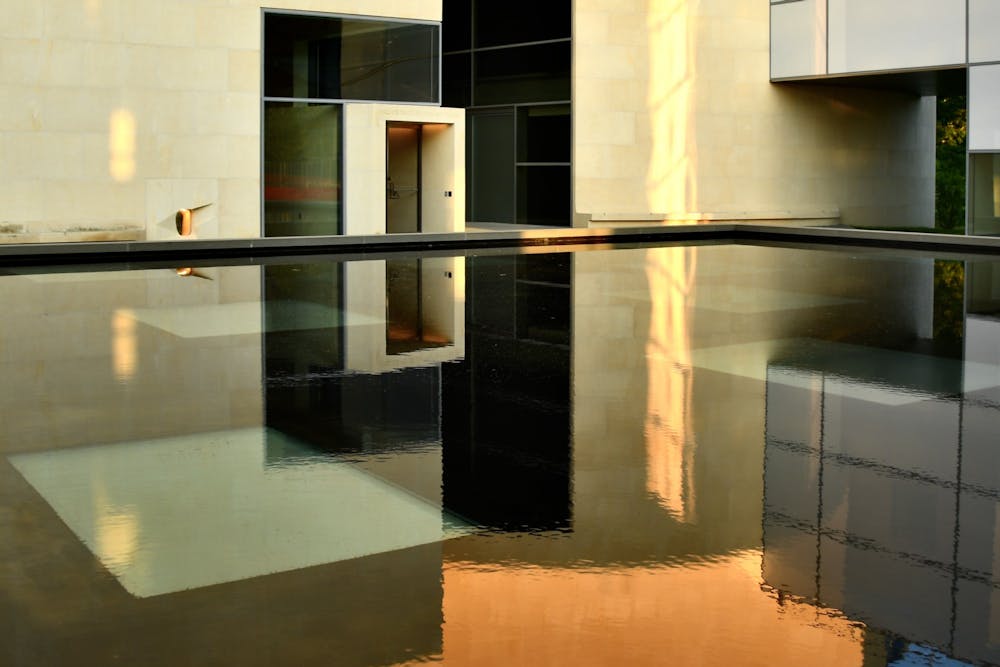Theater director Will Davis and writer Danez Smith have been announced as Princeton University Arts Fellows for the 2020-22 academic years by the Lewis Center for the Arts.
The Arts Fellows program at the University provides support for early-career artists who have demonstrated both extraordinary promise and a record of achievement in their fields with the opportunity to further their work while teaching within a liberal arts context. The program, funded by the Andrew W. Mellon Foundation, the David E. Kelley ’79 Society of Fellows Fund, and the Maurice R. Greenberg Foundation, requires its fellows to be active members of the University’s intellectual and artistic community during their two-year residency by teaching a course each semester or, in lieu of a course, undertaking an artistic assignment that deeply engages undergraduate students.
One of this year’s recipients, Davis, is a director and choreographer. He is the artistic director of the American Theater Company, an alumnus of the Soho Rep. Theatre Writer/Director Lab, the New York Theatre Workshop 2050 Directing Fellowship, and the Brooklyn Art Exchange’s Artist-in-Residence program.

His recent credits include “Evita” (Olney Theatre Center) which received a Helen Hayes Award nomination, “Colossal” (Mixed Blood Theatre, Olney Theatre Center) which received a Helen Hayes Award for Outstanding Director of a Play, and “Men On Boats” (Clubbed Thumb) which received a Lucille Lortel Award nomination. Some of his other directorial credits include “Everybody” (Shakespeare Theatre Company), “The Carpenter” (Alley Theatre), “India Pale Ale” (Manhattan Theatre Club), “Bobbie Clearly” (Roundabout Underground), and “Spamtown, USA” (Children’s Theatre Company).
Davis has also developed, directed, and performed his work with NYTW, Clubbed Thumb, New Museum, Olney Theatre Center, Alliance Theatre, Playwrights Realm, Fusebox Festival, The New Harmony Project, The Orchard Project, and The Ground Floor at Berkeley Rep. He holds a B.F.A. in Theatre Studies from DePaul University and an M.F.A. in Directing from UT Austin.
Davis starts his residency at the University with an Atelier course (Atelier is a unique academic program that brings together professional artists from different disciplines to create new, original work) in the fall: ATL 498: Maximizing the Minimal. The class will seek to explore the myriad of ways we speak on stage aside from spoken language through dialogues between space, time, object, and the body.
Davis did not respond to a request for comment by time of publication.
The other recipient, Smith, is a writer and performer from St. Paul, Minn. They have authored several novels including “Don’t Call Us Dead” (Graywolf Press, 2017), which received the Forward Prize for Best Collection and the Midwest Booksellers Choice Award in addition to being named a finalist for the National Book Award, and “[insert] Boy” (YesYes Books, 2014), which received the Lambda Literary Award and the Kate Tufts Discovery Award. Other works include “Homie” (Graywolf Press, 2020) and the chapbook “hands on ya knees” (Penmanship Books, 2013).


Smith is the recipient of fellowships from the Poetry Foundation, the McKnight Foundation, Cave Canem, and the National Endowment for the Arts. They are a founding member of the multi-genre, multicultural Dark Noise Collective and co-host of the podcast “VS” with Franny Choi. Their work has appeared in many magazines and journals, such as “Poetry,” “Ploughshares,” “Beloit Poetry Journal,” and “Kinfolk.” They have also been featured on Buzzfeed, in The New York Times, and on the Late Show with Stephen Colbert. Smith earned a B.A. from the University of Wisconsin-Madison, where they were a First Wave Urban Arts Scholar.
Smith is eagerly looking forward to their time at the University.
“Being able to join the faculty at Princeton for a spell feels like a dream. Few things get me hype like being in a circle with poets making and being unmade by poems,” Smith said. “I’m excited to be able to explore poems, how they happen and what they do in the world, who they hold and what language and thoughts they make possible, over the next few years with students at Princeton.”
“The next few years will be a time of rebuilding, remodeling, and reimagining our world, how we intend to move forwards as people, as a people, and I know poems are part of that reimagining,” Smith continued. “I’m looking forward to getting to work with everyone.”
In the fall, Smith will teach a creative writing class, entitled CWR 218: Writing and Performance. It seeks to explore poetry across various forms of media, including but not limited to written work, spoken word, and Instagram.








